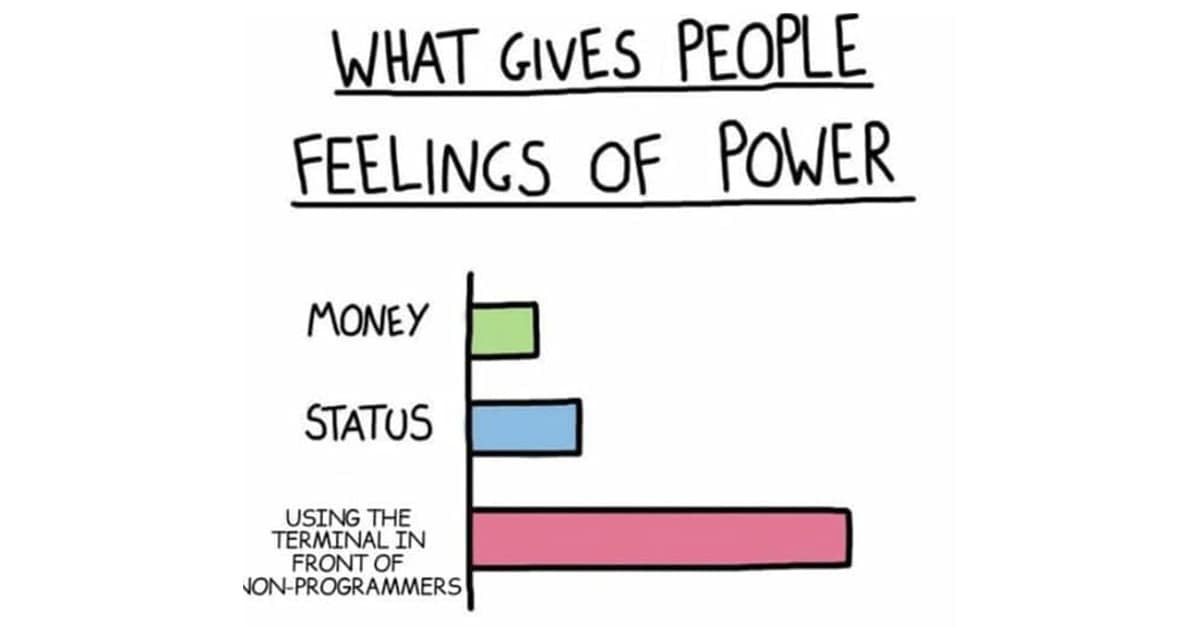Bitcoin Tech Talk #437
Interesting Stuff
The Evolution of Sports Betting - This article is about how the sports betting market has become near ubiquitous and an enormous industry of grift. What started as daily fantasy sports has become, in the words of the author, predatory. The most disturbing part of the article was how these gambling services have made the betting incredibly unfair and exploitive by limiting players that win consistently while grooming the ones showing addictive behavior towards more addiction. The gambling industry and the current memecoin pump and dump both show what happens when the same rules and regulations don’t apply to new industries.
Gamification - Related to the last story is this one about the gamification of everything and how our behaviors are under assault through the many cognitive attack vectors of our psyche. The main thing I learned was the immediate feedback element of measurable metrics, which unfortunately result in people being easily manipulated. As the article points out, what makes us feel meaningless are these exact zero-sum status games on social media with easy-to-see metrics. The author suggests that this gamification can be used for good, like exercising or some other discipline, but I suspect that the real way to get out is to reject the status game altogether.
Sex and Meaning - The ethics of sex have had for the past 20 years, a political tinge to them, and unfortunately, the dominant perspective has been one of individual rights and not about the biological and spiritual functioning. This article, was for me, a deeply insightful way to look at sexual morality in the context of social and cultural change. Freedom is not in being enslaved to our biological desires, but to find a way to tame them in a healthy way. Unfortunately, the people that want your money are incentivized to direct sexual desire towards addiction.
Triumph of the Fake - The article is a beautiful and deeply penetrating insight into the psyche of California and how it’s evolved over the years. Even the title is a gem, “Ghosts in the shadow of the Mouse” which is a reference to what, in many ways defines California: Disneyland. It’s a land that’s ever-changing and fake, creating its own reality, it’s own Utopia for millions of visitors every year, a microcosm of LA and the unreality that they live in. The pleasure is temporary and unsatisfying, while the longing for the real gets more and more intense. It is that unspoken longing for something true, which in a fiat society is very difficult to find.
Doomerism of the Right - The author is a Trump supporter showing how it’s the attacks of Trump from the right which are both baffling and decidedly a loser. The political realignment of the last 10 years has left a lot of politically homeless people, especially among neocons and as the author rightly notes, these people don’t know how to win. The same dynamic is happening within Bitcoin, with many doomers within Bitcoin proclaiming that it’s all over because of Blackrock ETFs or the SBR or Michael Saylor or some such thing. The transition from being in the minority to controlling the discourse is a jarring change, and requires some frame reset.
What I'm up to
Redemptive Economics - I spoke on this Christian podcast about Bitcoin, mostly from a technical perspective. I had a pretty technical guy that asked some insightful questions about how Bitcoin works, particularly with respect to the core software and development. There were a lot of economic questions, too, which often comes up in these situations and I gave the reasons for why I believe Bitcoin to be better than anything else out there.
Ossification Talk - My talk from Plan B San Salvador is up and it’s my case for ossification of the Bitcoin protocol. The main new thing here is the idea of “worse is better” which, from a network effect perspective is that subjective goodness is much more important than objective goodness. That is, what seems “better” by some technical criteria (like less lines of code needed to create a feature) pales in comparison to being compatible with the rest of the ecosystem. I also gave some thoughts on proposed soft forks as well.
Programming Blockchain - My 2-day seminar for developers is running for the final time in Austin, TX March 31-April 1. I’ve taught hundreds of developers the Bitcoin protocol and many of the alumni are working in Bitcoin companies all over the world. Apply today to get the early bird discount.
Nostr Note of the Week
What I’m Promoting
Bitcoin
Bribery Attack - A recent paper has an interesting attack that involves mining pools orphaning a block called a Bribery Attack. Given an honest miner who finds a block, the attacker bribes various pools to orphan that block, the economics being such that the attacker can offer less than the amount of reward in the block being orphaned, as the lower difficulty compensates eventually for the bribe for everyone. It’s a bit of a far-fetched attack, as it requires pools to not run Stratum 2.0 and it would be easily detected by mining participants, but is at least game-theoretically rational.
py-bitcoinkernel - This is a python project that uses libbitcoinkernel for the consensus-related stuff and in fact uses the same file storage as Bitcoin Core. The idea is that you can be sure of being in consensus with the Bitcoin Core software instead of attempting to make the consensus engine yourself. The evaluation of corner cases tends to be very tricky and a library like will now enable python-based projects, like mining software or even nodes to be coded without fear of inadvertent forks. There’s already a rust version of the library that’s further along.
cbip32 - If you’ve coded any BIP32 wallets, one of the frustrations you quickly encounter is that it can be slow, especially for loosely typed languages like Python. Here’s a C library that makes the BIP32 derivations and such much faster by leveraging the libsecp256k1 and libsodium libraries in addition to native C operations that will naturally be faster than most other languages. Using something like CFFI in Python should speed things up significantly for any derivation or search operations on xpubs.
Lightning
Voltage/Fidelity Lightning Report - The two companies have put out a report on the current state of the lightning network. Among other findings, there seems to be more Wumbo channels that route efficiently which contributes to the payment success rate, which has increased. More businesses are using Lightning for payment, which suggests that more businesses want Bitcoin on their balance sheet.
Zero-fee Commitment Alternative - t-bast proposes an alternative to the zero-fee commitment idea. The zero-fee commitment is a way to modify the fees later in a force-close situation, but requires an on-chain UTXO to pay for that fee. The proposal here is for mobile wallets, which are always end-points in the lightning routing scheme to get instead a pre-signed transaction with the current fee-rate in case of a need to force-close. This obviates the need for a UTXO and is ideal for mobile wallets as the fee is in the pre-signed transaction.
Dual Funded Channel Implementation - The BTrust blog has a post on why dual funded channel implementation in LDK is challenging. The main reason for its difficulty are the interaction requirements for dual-funded channels, which require more prompts to the user, among other things. As they say in the blog, there are some refactorings that need to happen before the channels can be implemented, given the architecture that makes no assumptions about the node implementation or even what persistent storage is used.
Economics, Engineering, Etc.
Google Bitcoin Wallet - The details are sketchy, but apparently, Google is diving into Bitcoin wallet development by making it possible for any Google account holder to have their own Bitcoin wallet. Assuming this is a custodial wallet, this would instantly become one of the largest wallet providers in the world, though how they actually handle everything will be key. Will they support lightning? Is transfer going to be mostly Google-to-Google? And more importantly, will they rugpull this product like they’ve done with many other products over the years?
Jerome Powell’s Changing Stance on BTC - Under Biden, Jerome Powell has been a staunch opponent of banks custodying Bitcoin in particular and crypto in general. He was also an advocate of CBDCs, but seems to be singing a different tune with Trump now in office. This may mean that banks will now be allowed to custody Bitcoin for their customers and if his commitment to never issue CBDCs is genuine, will be a boon for stablecoin issuers. Given that Tether is one of the biggest holders of US Treasuries in the world, that may have been a consideration for Powell as well.
ByBit Hack - The exchange got looted for $1.4B in ETH, despite the funds being in a multisig cold wallet. Apparently, the North Korean Lazarus Group was responsible for the hack, using social engineering tricks combined with compromising the computers associated with the key holders to compromise the funds in what looked to the signers as a normal transaction. Remarkably, the exchange has gotten a bridge loan for 80% of that amount, even in the midst of a $4B bank run. This is officially the biggest hack in “crypto” history and will no doubt go down as a historical moment.
Quick Hits
$2B - That’s the amount in the 0% convertible note offering by Strategy.
SEC drops Coinbase Case - Coinbase is no longer under SEC investigation for their token offerings.
Memecoins Declining - Apparently, all the rug-pulling has made SOL’s users a bit more hesitant to the tune of 40% less activity. Gee, ya think?
Fold on the NASDAQ - The wallet/rewards company is now on the NASDAQ with a 1000+ BTC treasury.
Milei Impeachment - The rugpull is creating some real-world consequences for. the Argentinian president.
Fiat delenda est.







